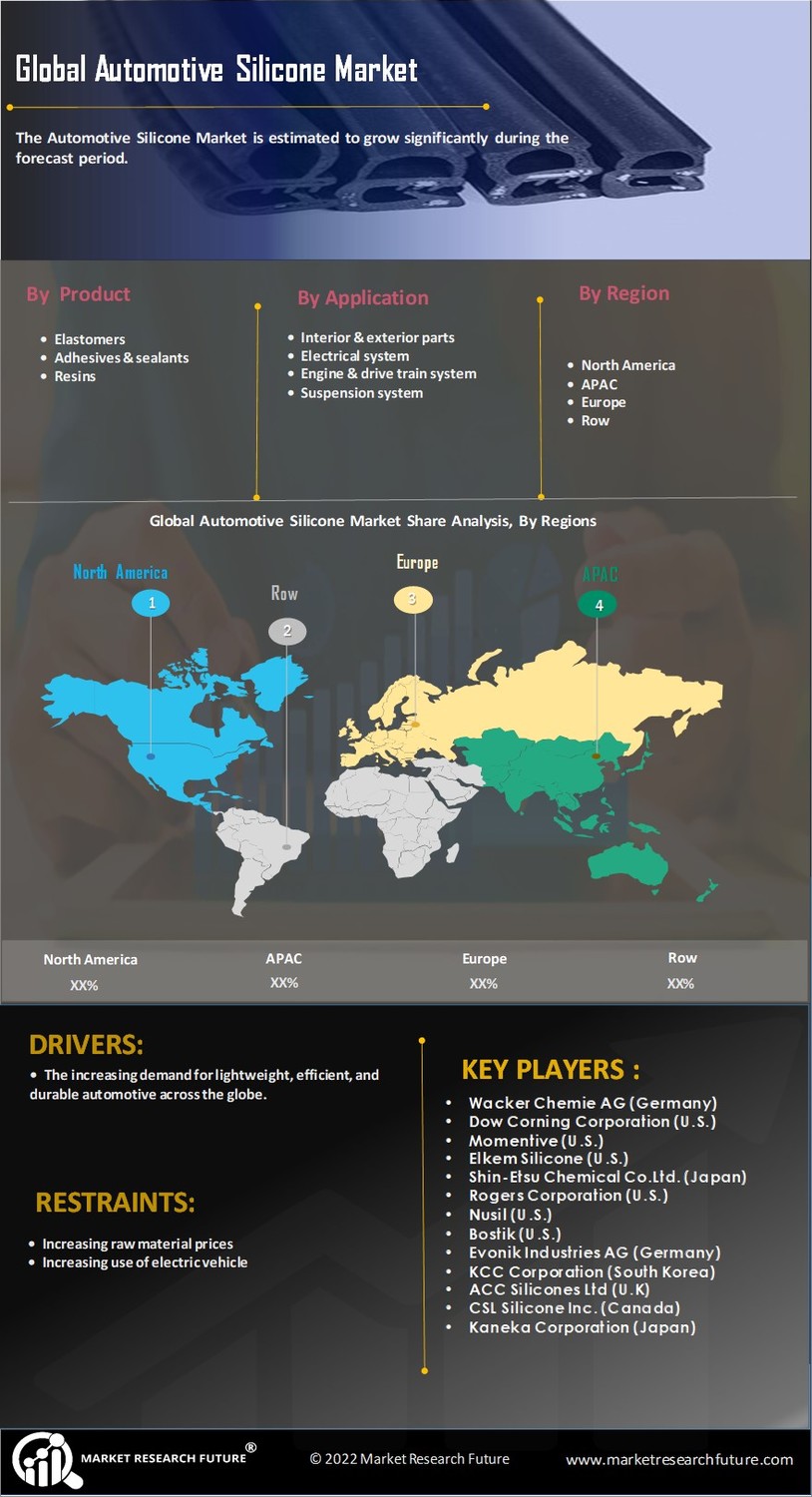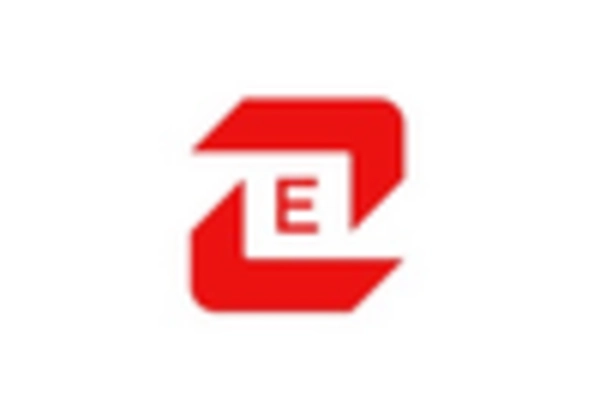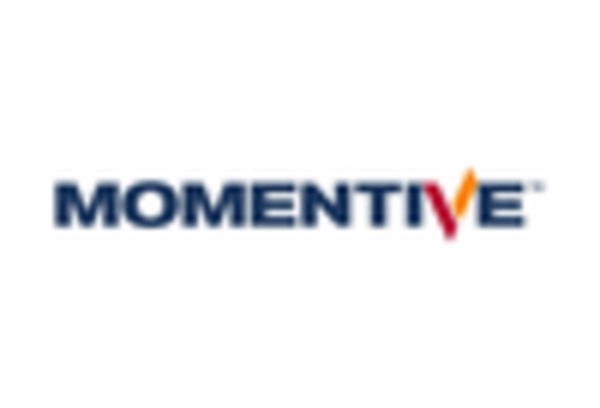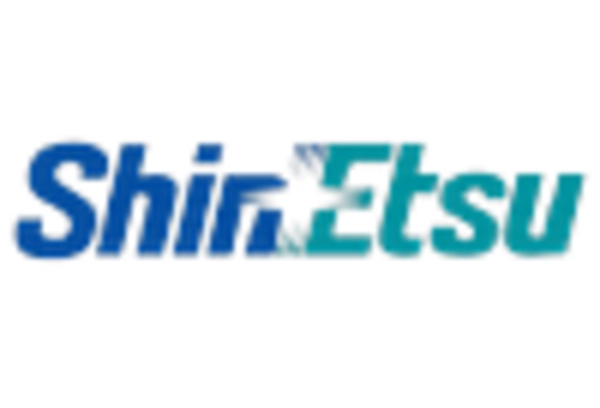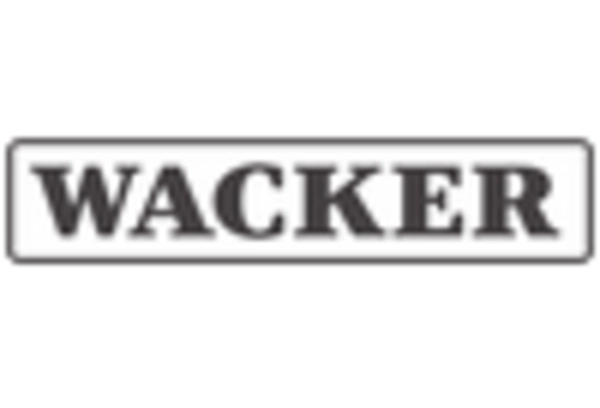Market Growth Projections
The Global Automotive Silicone Market Industry is poised for substantial growth, with projections indicating a market size of 3.14 USD Billion in 2024 and an anticipated increase to 6.69 USD Billion by 2035. This growth is underpinned by a compound annual growth rate (CAGR) of 7.12% from 2025 to 2035. Such figures reflect the increasing integration of silicone materials in various automotive applications, driven by advancements in technology, regulatory compliance, and evolving consumer preferences. The market's expansion is indicative of the critical role that silicone plays in the future of automotive manufacturing.
Enhanced Performance Requirements
Automotive manufacturers are continuously seeking materials that can withstand extreme conditions while providing superior performance. This trend significantly influences the Global Automotive Silicone Market Industry, as silicones offer excellent resistance to heat, moisture, and chemicals. These properties make silicone ideal for applications such as gaskets, seals, and adhesives in vehicles. The market is expected to grow at a CAGR of 7.12% from 2025 to 2035, driven by the need for high-performance materials that can meet stringent automotive standards. As vehicles become more complex, the reliance on silicone for reliable performance is likely to increase.
Growing Demand for Electric Vehicles
The increasing adoption of electric vehicles (EVs) is a primary driver for the Global Automotive Silicone Market Industry. As manufacturers strive to enhance the performance and efficiency of EVs, silicone materials are utilized for their thermal stability and electrical insulation properties. In 2024, the market is projected to reach 3.14 USD Billion, reflecting the rising need for advanced materials in EV production. Furthermore, the transition towards sustainable automotive solutions is likely to propel the demand for silicone components, which are essential for battery management systems and other critical applications in electric vehicles.
Regulatory Compliance and Safety Standards
Stringent regulations regarding vehicle emissions and safety are shaping the Global Automotive Silicone Market Industry. Manufacturers are compelled to adopt materials that comply with environmental standards while ensuring safety and durability. Silicone materials are increasingly used in applications that require compliance with these regulations, such as sealing and insulation components. The anticipated growth of the market to 6.69 USD Billion by 2035 indicates a robust response to these regulatory pressures. As automotive companies prioritize sustainability and safety, the demand for silicone solutions that meet these criteria is expected to rise.
Technological Advancements in Manufacturing
Innovations in manufacturing processes are driving the Global Automotive Silicone Market Industry forward. Advanced techniques such as 3D printing and automated production are enabling the efficient use of silicone materials in automotive applications. These advancements not only reduce production costs but also enhance the precision and quality of silicone components. As the automotive industry embraces these technologies, the demand for high-quality silicone products is likely to increase. The market's growth trajectory suggests that manufacturers will continue to invest in innovative solutions that leverage the unique properties of silicone to improve vehicle performance and reliability.
Rising Consumer Preferences for Comfort and Aesthetics
Consumer preferences are evolving towards vehicles that offer enhanced comfort and aesthetic appeal, influencing the Global Automotive Silicone Market Industry. Silicones are increasingly used in interior applications such as dashboards, trims, and seating materials due to their versatility and ability to provide a premium feel. As automotive design trends shift towards more luxurious and comfortable interiors, the demand for silicone materials is expected to grow. This trend aligns with the projected market growth, as manufacturers seek to incorporate silicone solutions that enhance both functionality and visual appeal in their vehicles.
